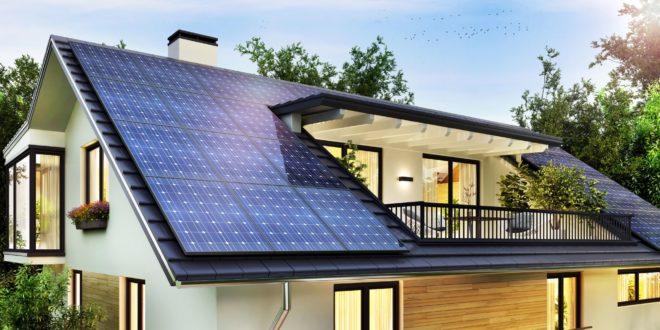When it comes to sustainability, solar panels are a top choice. They’re renewable energy sources that provide clean electricity with minimal carbon footprint and environmental impact. But did you know you can do more to make your solar panel system greener? This article will discuss how to make your solar panels even more sustainable for the future of our planet.
How Do Solar Panels Work?
Solar panels harness the power of the sun to generate electricity. They use photovoltaic cells, which convert solar energy into direct current (DC) electricity. These cells are made from materials that create an electric field when exposed to sunlight. This causes electrons within the cell to be released, which produces electricity. Solar panels can then store this electricity in batteries or immediately send it to your appliances.

While the average cost to install solar panels can be high, you can take advantage of federal tax incentives and local rebates to help offset the initial expense.
Practical Ways To Make Solar Panels More Sustainable
Now that you know how solar panels work, here are some viable ways to make them even more sustainable:
- Conduct An Energy Audit
Conducting an energy audit is an essential step to making your solar panels more sustainable. This involves assessing the energy efficiency of your home. An energy audit can help you identify inefficiencies that could cost you money and determine which appliances consume the most electricity.
Aside from giving you a clear picture of how much electricity you’re using daily, an energy audit can help you identify potential areas for energy savings. You can make simple changes to reduce energy usage and save money without investing in additional equipment or upgrades.
- Ensure Regular Cleaning And Maintenance
Regular cleaning and maintenance of your solar panels are essential to keep them running at peak efficiency. This includes removing dirt, dust, leaves, and other debris that can accumulate on the panel surface over time. Here’s how to clean your solar panels:
- Use a soft brush or cloth with a mild detergent and warm water.
- Avoid harsh chemicals, as these may damage the surface of the panels.
- Rinse off any soapy residue with fresh water.
It’s also crucial to check for any signs of wear and tear in the components of your system, such as loose wiring connections or broken parts. Inspect all visible parts regularly and contact a professional for necessary repairs or replacements. Doing this will extend their lifespan, ensuring your solar power system runs optimally for years.
- Install A Battery Storage System
Installing a battery storage system can make your solar panels more sustainable and efficient. This system will provide backup power when there isn’t enough sunlight to generate electricity from photovoltaic cells. It also allows you to store excess energy during peak production for later use.
Generally, battery systems come in various sizes and types, so research which would best suit your needs. The cost can vary based on how much energy you plan on storing and other factors such as location or installation expenses.
Investing in a battery system can result in substantial long-term cost savings by reducing your dependence on the grid. With the proper setup, you can ensure your renewable energy source remains reliable even during unfavorable weather conditions.
- Improve Insulation
Improving insulation is vital to making your solar panels even more sustainable. It starts with selecting suitable materials for construction and installation. Quality insulation will keep heat in or out, depending on what you’re trying to achieve. Here are two ways to improve insulation:
- External Walls: Use brick, stone, metal sheeting, or cement blocks for exterior walls, as they provide excellent thermal protection.
- Internal Walls: Choose lightweight insulating material like plasterboard or fiberglass sheets that can be fitted between interior wall studs.
These simple measures can significantly increase your solar panel system’s sustainability without spending too much time or money.
- Incorporate Sustainable Practices
Incorporating sustainable practices will help you maximize the advantages of solar panels while reducing environmental impact. Here are some tips to consider:
- Invest in battery storage technology to store any excess energy your solar panels produce for future use.
- Look for green tariffs offering reduced electricity rates if you opt for cleaner energy options.
- Minimize the amount of packaging used when installing new solar equipment onsite.
- Recycle old parts and components from existing systems instead of throwing them away.
- Consider using fewer materials during installation and find ways to reuse existing items whenever possible.
By taking these steps, you can reduce your carbon footprint while still getting the most out of your solar panel system.
- Find Reputable Solar Panel Installers
Finding the right solar panel installers is crucial in making your solar panels even more sustainable. To ensure you’re working with trustworthy professionals, here are three tips:
- Check Customer Reviews: Read many customer reviews from online review sites to assess prospective installers in terms of ease of installation, warranties, and quality of customer service.
- Research Credentials: Ensure the contractors have proper licensing and certifications for installing solar systems where you live.
- Read Contracts Carefully: Understand every contract clause before signing it; don’t hesitate to ask questions if something doesn’t make sense.
By taking these steps, you can find reliable installers to help make your renewable energy dreams come true while securing your financial interests.
Conclusion
It’s essential to make sure your solar panels are sustainable so that you can take advantage of their long-term benefits. You can do this in several practical ways, such as ensuring regular cleaning and maintenance, installing a battery storage system, conducting an energy audit, avoiding harmful materials, incorporating sustainable practices, and finding reputable installers.
By following these measures, you can optimize the performance of your solar panels and reduce your carbon footprint.



